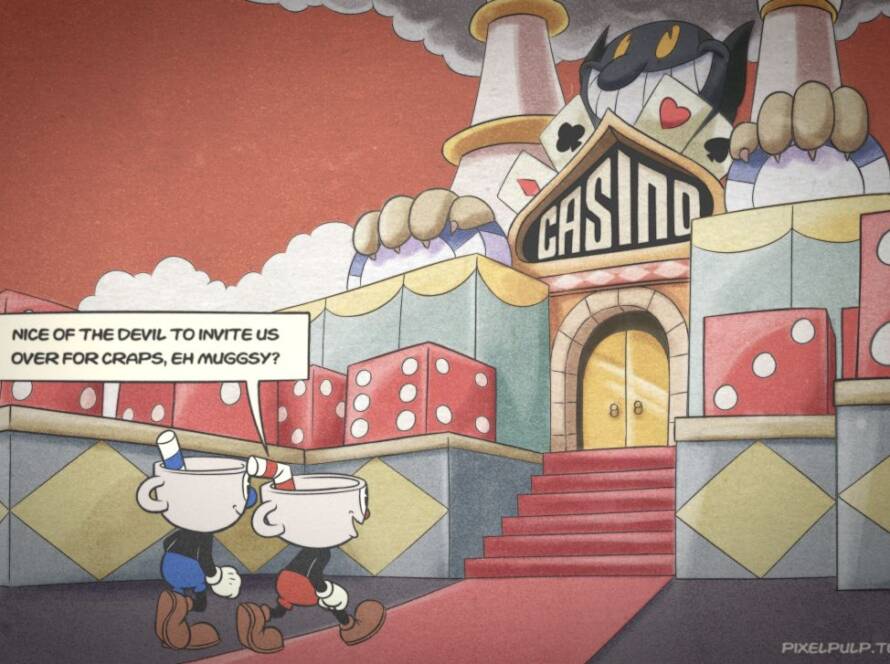While slots and classic table games continue to dominate online casinos, a new wave of innovation is reshaping the iGaming landscape. The past year has witnessed a marked rise in specialty games—a category that was once considered too niche to make a significant impact. Today, fueled by cutting-edge technology, immersive design, and data-driven personalization, these unique offerings are stepping out of the shadows to command serious market share. By catering to evolving player tastes and leveraging creative formats, specialty games are not just filling gaps—they’re redefining what it means to play in the digital casino space.
Here are three standout innovations from industry leaders that highlight how specialty games are reshaping iGaming:
1. Slingo’s Hybrid Gameplay by Slingo Originals

Slingo continues to lead the charge in hybrid gameplay, combining the simplicity of bingo with the fast-paced action of slot mechanics. Titles like Slingo Rainbow Riches and Slingo Starburst offer dynamic grids where players match numbers while unlocking bonus rounds. This innovative mix of casual and immersive gaming appeals to both bingo enthusiasts and slot lovers, bridging two player bases in a way that’s fresh and engaging.
What makes it innovative?
- Crossover Appeal: Slingo creates a new category by blending popular mechanics.
2. Crash Mechanics by Spribe

Games like Aviator by Spribe have introduced crash mechanics that fuse risk-taking with real-time multiplayer action. Players watch a plane ascend with a rising multiplier and must “cash out” before it crashes. This minimalist, arcade-inspired approach offers high-stakes excitement with a skillful timing component.
What makes it innovative?
- Simplicity Meets Strategy: The straightforward gameplay belies the strategic depth needed to win.
- Real-Time Multiplayer: Players can see others’ actions and compete for leaderboards, adding a competitive edge to the experience.
3. Mines by Stake.com: A Strategic Twist on Luck-Based Play

Stake.com’s Mines offers a fresh, skill-based take on classic minefield mechanics, blending simplicity with high-stakes decision-making. Players start with a grid of hidden tiles, each hiding either a safe square or a mine. The goal is to uncover as many safe tiles as possible to increase the payout multiplier, while avoiding the mines that instantly end the game. Players can cash out their winnings at any time, adding a layer of tension and strategy.
What makes it innovative?
- Skillful Risk Management: Unlike purely luck-based games, Mines challenges players to weigh risk versus reward with every tile they choose, turning each session into a game of strategy.
- Customizable Gameplay: Players can adjust the number of mines on the board, tailoring the game’s risk and potential rewards to their preferences.
- Visual Simplicity, Depth of Play: The minimalist design is visually clean, but the gameplay offers a level of strategic depth that keeps players engaged longer.
This blend of simplicity, strategy, and player control makes Mines a standout example of how specialty games can evolve into captivating, skill-based experiences in the iGaming space.
An Overview for iGaming Innovation
1. Beyond the Standard Fare
Specialty titles—think bingo variants, scratch cards, game-show-inspired live formats, and skill-infused hybrids—are experiencing newfound popularity. Originally, these formats served as palate cleansers between spins of the roulette wheel, but today they’re standalone hits, attracting players who crave diversity and fresh interaction patterns.
2. Real-Time Analytics and Content Experimentation
Modern iGaming operators rely heavily on robust analytics platforms to track game performance and player engagement. By rapidly testing and refining niche formats—adjusting volatility levels, adding gamified achievements, or updating themes—providers can optimize each new release. This iterative approach turns specialty games from experiments into proven revenue streams.
3. Localization and Cultural Resonance
The international expansion of regulated iGaming markets has spotlighted the importance of localized content. Specialty games that reflect regional folklore, national sports icons, or holiday traditions resonate deeply with players. Leveraging multilingual UI/UX design and cultural themes allows developers to tap into underserved audiences, transforming what might have been “niche” into “mainstream” within specific demographics.
4. Next-Gen Tech Integration
From streaming-quality live dealers to mobile-first interfaces, specialty games thrive on cutting-edge tech. Smart device compatibility, minimal latency, and secure payment methods all contribute to a user-friendly environment. Providers also experiment with augmented reality (AR) overlays and innovative RNG mechanics to differentiate their products and attract tech-savvy gamers.
5. Social Elements and Community Play
Many specialty offerings encourage communal participation. Live bingo chats, leaderboard competitions, and multiplayer arcade-style challenges foster community energy, making these experiences feel more like digital events than isolated sessions. This social dimension feeds back into player retention—players stick around for the camaraderie and entertainment value.
Specialty games have evolved from peripheral diversions to strategic pillars in the iGaming mix. Through data-driven experimentation, cultural tailoring, and advanced tech integration, these once-niche categories now command dedicated followings. As operators continue to refine these offerings, the rise of specialty games represents not just market diversification, but a dynamic reimagining of what online casinos can—and should—offer their players.


